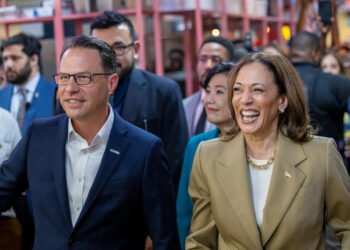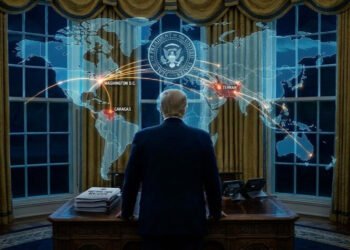SYDNEY, Australia — Prime Minister Anthony Albanese has made history by becoming the first Australian leader in over two decades to secure a second consecutive three-year term, with early results suggesting his Labor Party is on course to increase its parliamentary majority — a rare feat in modern Australian politics.
Addressing supporters in Sydney on Saturday night, Albanese framed the victory as a rejection of imported political ideologies, particularly the brand of conservatism linked to former U.S. President Donald Trump.
“Australians have chosen to face global challenges the Australian way — by supporting each other and planning for a better future,” Albanese said. “We don’t need to borrow our values or our direction from anyone else.”
The win comes after a closely contested race against opposition leader Peter Dutton and his conservative Liberal Party. Labor had previously held a slim 78-seat majority in the 151-seat House of Representatives, but projections now indicate an expanded mandate for the center-left party.
Dutton, who was dealt a personal blow by losing his long-held parliamentary seat after 24 years, had been sharply criticized during the campaign for aligning his party’s platform with Trump-era policies. Labor’s campaign dubbed him “DOGE-y Dutton,” a reference to his proposed Department of Government Efficiency, which critics likened to U.S.-style austerity politics.
The Liberal Party had promised aggressive cuts to government spending, including a 20% reduction in public service jobs. Dutton also proposed a pivot toward nuclear energy to meet Australia’s climate targets — a stance Labor dismissed as unrealistic, highlighting the country’s lack of existing nuclear infrastructure.
Economic concerns dominated the election, with the country grappling with what both sides called a cost-of-living crisis. Food insecurity affected over three million Australian households last year, according to Foodbank Australia. In response to mounting pressure, the Reserve Bank lowered interest rates in February and is expected to do so again at its upcoming meeting in May to spur investment amid global economic volatility, including trade tensions linked to Trump-era tariffs.
The election also reflected a generational shift in the electorate. For the first time, younger voters outnumbered Baby Boomers at the polls, prompting both major parties to focus on housing affordability and first-home buyer support.
With the opposition in disarray and internal criticism mounting over its electoral strategy, Albanese’s Labor now looks to solidify its agenda — one focused on progressive social policy, economic stability, and distancing Australia from the political turbulence seen in parts of the Western world.
The final composition of Parliament will be confirmed in the coming days as vote counting continues.

 English
English



























































